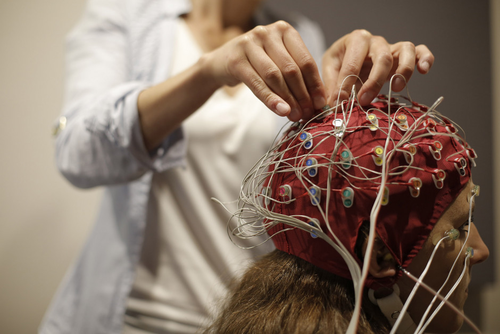
KEITEL Anne
Recommendations: 0
Review: 1
Review: 1
19 Jun 2024

STAGE 1

Culture-Driven Neural Plasticity and Imprints of Body-Movement Pace on Musical Rhythm Processing
The interplay of music, movement, and culture on rhythm processing
Recommended by Juan David Leongómez based on reviews by Anne Keitel and 1 anonymous reviewerThe interplay of music, movement, and cultural experience shapes rhythm perception. From bouncing babies and children at play, to tapping, clapping, and dancing, music often triggers synchronous body movements that can influence how we process rhythm. And, at the same time, long-term exposure to specific musical traditions shapes how we perceive and interpret rhythms.
However, direct behavioural and neuroscientific evidence on how these processes occur remains scarce. In this programmatic submission, comprising two complementary Stage 2 reports, Guérin et al. (2024) will investigate how body movements shape the processing of auditory information, and how previous short-term motor practice and long-term cultural experience interact to shape neural and behavioural responses to rhythmic stimuli. The authors will record in separate sessions both electroencephalography (EEG) and hand clapping, in response to rhythms from West/Central Africa. These recordings will be conducted before and after a session in which participants will clap/step to either a three or a four-beat metre that is expected to influence how they interpret a rhythm.
The first Stage 2 report, which will be conducted on African-enculturated participants, aims to demonstrate how body-movement pace flexibly imprints on human sensory processing. The authors build on various theoretical models that emphasise the role of motor production in metre perception, and predict that both neural and behavioural entrainment will improve following movement, matching the rhythmic pattern set by the previous body movements.
The second Stage 2 report aims to uncover how short-term motor practice and long-term cultural experience interact to shape responses to rhythmic stimuli, by integrating short-term motor practice and long-term cultural experience. For this, the authors will test separate groups of participants from distinct cultural backgrounds (African vs. Western-enculturated), which are predicted to show neural and behavioural differences in their preferred metric mapping before body movement, and expect that neural and behavioural entrainment will improve after movement, especially for the metre set by prior movements, and more significantly for the metre common in the participant's culture.
Together, the findings from the planned Stage 2 reports are expected to clarify how long-term cultural background and short-term motor practice imprint onto rhythm processing in humans. This research will enhance our understanding of how cultural experience, body movement, and neural plasticity interact in music processing.
The Stage 1 manuscript was evaluated over three rounds of in-depth review. Based on detailed responses to the reviewers' and recommender's comments, the recommender judged that the manuscript met the Stage 1 criteria and awarded in-principle acceptance (IPA).
URL to the preregistered Stage 1 protocol: https://osf.io/skuyc
Level of bias control achieved: Level 6. Data collection commenced during the later part of Stage 1 peer review; however, since no changes to the design were made after this point, the risk of bias due to prior data observation remains zero and the manuscript therefore qualifies for Level 6.
List of eligible PCI RR-friendly journals:
Level of bias control achieved: Level 6. Data collection commenced during the later part of Stage 1 peer review; however, since no changes to the design were made after this point, the risk of bias due to prior data observation remains zero and the manuscript therefore qualifies for Level 6.
List of eligible PCI RR-friendly journals:
References
Guérin, S. M. R., Coulon, E., Lenc, T., Polak, R., Keller, P. E., & Nozaradan, S. (2024). Culture-Driven Neural Plasticity and Imprints of Body-Movement Pace on Musical Rhythm Processing. In principle acceptance of Version 2.1 by Peer Community in Registered Reports. https://osf.io/skuyc